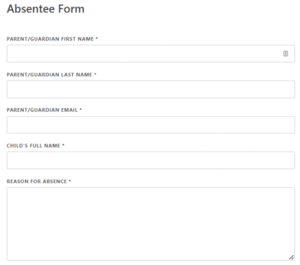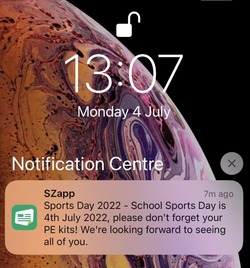HOW TO ENGAGE WITH THE PARENTS OF SEND STUDENTS IN YOUR SCHOOL
According to the last school census published by Gov.uk on 16th June 2022, there are just under 1.5 million students with Special Educational Needs (SEN) in England. This is an increase of 77,000 (4.3%) vs. 2021.
This number continues on an upward trend, and accounts for nearly 17% of the school population. So, regardless of whether senior leadership teams are part of a mainstream school or a special needs school, it’s crucial to engage well with the parents of these students in order to help improve their educational outcomes.
Understanding parents better
So, what can schools do to improve relationships with this SEND (Special Education Needs & Disabilities) parent community? Firstly, it’s important to understand how these parents think and behave. According to headteacher-update.com, SEND parents fall broadly into one of four categories:
The ‘pressure’ parents - These parents often contact the school, and push teachers to do more to assist their children. They’re often keen to get an Education, Health & Care Plan (EHCP) for their child. They may have recently diagnosed children and therefore don’t have a full understanding of how the SEND system operates. These parents need frequent and accurate information from the school in order to feel engaged.
The diagnosis-seeking parents - These parents are looking for a formal diagnosis for their child. There may be various reasons for this desire for a ‘label’ - perhaps to understand how to deal better with their behaviour, to gain access to benefits, or to improve the likelihood of them getting into a certain type of school. They’re often searching for more information on different special need conditions, and look to the teacher to provide this. They want to see information that is reassuring and also helps them understand their child better.
The parents are in denial - These parents refuse to admit that their child may be experiencing difficulties or believe their child is ‘different’. They will be keen that their child is treated the same way as other students, which may not be beneficial for the child. Given they are resistant to any diagnosis, schools need to be sensitive with the language they use to avoid using words that may be considered ‘labelling.’
The dishonest parents - Parents who don’t appear fully honest about their child’s condition often behave like this because they feel they may be in some way to blame or their parenting skills might be questioned. Often born out of not fully understanding.
Understanding these parents better will ensure you’re better equipped to engage better with them. For example, a parent seeking an autism diagnosis for their child would welcome someone who is proactive in providing any resources about this special need, or seeking the advice of a SENCO. A parent in denial, however, would appreciate a nurturing, reassuring approach that encourages them to open up to their reality at their own pace.
In addition to these specific parent engagement strategies, there are also more general approaches that will potentially help improve relationships with all parents of SEND students.
Keep it short and simple
Parents of special needs students receive a lot of information about their child, both from the school and other sources. It’s also worth bearing in mind that some special needs are hereditary, and as such, there’s a higher likelihood that the parent themselves will have a similar special need. Autism Spectrum Disorder, for example, has a tendency to run in families.
For these reasons, the clearer and more concise you can be with your message, the better. In addition, think about the delivery of the message. A quick reminder about PE kits for the school sports day pushed out via app notification, for instance, is easier received by the parent than a repeated email clogging up their inbox, and very likely won’t be read at all.
Make it easy to focus on the positive
Whether on an individual, class or whole school level, all parents love receiving good news about their child. In return, this is great for parent engagement which in the long term, improves educational outcomes.
With parents of SEND students, this is even more important. That’s firstly because with some children, it’s not even possible for them to come home excited about something great that happened that day, as their special needs restrict them from doing so. Throughout their child’s school life, SEND parents have to deal with a lot of ongoing challenging situations. A positive message celebrating the success of their child will put a smile on their face and help to boost their connection with the school.
Of course, this is only possible if you have a platform that easily facilitates this, and our platform allows you to do just that, with media rich, easy-to-create, multi-device friendly DIY newsletters (see more in our article here).
Keep everything in one place
As we’ve previously mentioned, parents of SEND students have more day-to-day ‘stuff’ to deal with compared to other parents. They may have to make special after-school provisions, hospital or extra tuition appointments, or plan medication. In addition, day-to-day tasks very often take longer to complete, leaving parents feeling more stressed, anxious or frustrated.
The easier the school can make it for the parent to receive and consume information, the better. A starting point is, as much as possible, ensuring all school information is in one place for the parent to access. That means, when the parent does have time to organise their child’s week and get up to speed with what’s going on in the school, it’s there waiting for them.
Our school app is a great way to keep a bible of information in one easy place. The customised home screen means you can prioritise what you know is important for your parents at your school. The dynamic calendar is a lifeline, parents can see all important dates and sync either individual events or the whole thing into their own calendar.
The feed tab is also the perfect reassurance for parents who may be concerned they’ve missed a few messages. The historical notifications are all there safely, waiting to be read.
Encourage two-way communication
Engagement with parents goes both ways, and it’s crucial to cr
 eate an environment where the parent feels comfortable communicating to the school about their child.
eate an environment where the parent feels comfortable communicating to the school about their child. There are a variety of ways in which to do this. First and foremost, they need to have at least one point of contact that they trust and feel able to approach about any issue, without judgement. This might be the form teacher, SENCO or a pastoral lead.
Also, for those parents who are reticent or nervous to pick up the phone, it’s sometimes helpful to offer the option for them to get in touch digitally. With Schoolzine’s platform you can enjoy the form capability, you’re able to create online forms, with digital signature options, for any occasion. So whether it’s an absence, contact or volunteer form, parents can message you at their convenience, safe in the knowledge it will be picked up by the school at the earliest opportunity.
Creating an inclusive environment where parents of SEND students feel informed, included, listened to and most of all positive, will undoubtedly improve their engagement with the school for the long term. Using these strategies will help you to achieve this connection with a community that’s growing in size year after year.
If you have a large SEND population or are part of a special needs school, talk to us. We have a broad experience of helping special needs schools achieve a fantastic level of parent engagement.






